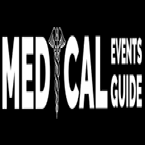Session and Tracks
TRACK 1: Psychiatry and Clinical Psychology
Psychiatry and Clinical Psychology are complementary yet distinct fields within mental health care, dedicated to understanding, diagnosing, and treating a wide range of psychological and behavioral disorders. Psychiatry, a medical specialty, focuses on diagnosing mental health conditions and managing treatment through both pharmacological and psychotherapeutic interventions. Psychiatrists assess patients from a medical perspective, considering neurobiological, genetic, and environmental factors that contribute to mental health challenges. Clinical Psychology, on the other hand, emphasizes the psychological and therapeutic aspects of mental health. Clinical psychologists employ various evidence-based therapies and psychological assessments to address behavioral, emotional, and cognitive issues. Through approaches such as Cognitive Behavioral Therapy (CBT), Dialectical Behavioral Therapy (DBT), and psychoanalysis, clinical psychologists help individuals develop coping skills, achieve emotional balance, and improve overall well-being. Together, these disciplines offer a comprehensive approach to mental health care, supporting patients across the continuum from diagnosis to long-term management. By integrating the strengths of both fields, mental health professionals can provide holistic and personalized care that addresses the unique needs of each individual, fostering resilience, recovery, and improved quality of life.
TRACK 2: Neuropsychiatry and Brain Health
Neuropsychiatry is an interdisciplinary field that bridges the gap between psychiatry and neurology, focusing on the complex interactions between the brain, behavior, and mental health. This specialized branch of medicine examines how neurological conditions can influence psychiatric symptoms and vice versa, emphasizing the importance of a comprehensive approach to diagnosing and treating mental health disorders. Central to neuropsychiatry is the understanding of brain health, which encompasses not only the absence of neurological disorders but also the maintenance of cognitive function, emotional well-being, and overall mental fitness. Factors such as neuroanatomical , neurotransmitter systems, and brain plasticity are integral to this field, providing insights into how various conditions—ranging from mood disorders and anxiety to neurodegenerative diseases like Alzheimer's—can impact mental health.
TRACK 3: Child and Adolescent Psychiatry
Child and Adolescent Psychiatry is a specialized branch of psychiatry focused on the diagnosis, treatment, and prevention of mental health disorders in children and adolescents, ranging from infancy through young adulthood. This field recognizes that the mental health needs of young individuals are distinct and require tailored approaches that consider their developmental stages, family dynamics, and social environments. Practitioners in Child and Adolescent Psychiatry are trained to understand the complexities of mental health issues that manifest during childhood and adolescence, such as anxiety disorders, depression, ADHD, autism spectrum disorders, eating disorders, and mood disorders. They employ a comprehensive assessment process that involves not only the child or adolescent but also their families, educators, and other caregivers to gather a holistic view of the individual's challenges and strengths. Treatment strategies in this field are diverse and may include psychotherapy, family therapy, and behavioral interventions, as well as pharmacological treatments when necessary. Child and adolescent psychiatrists collaborate closely with parents and guardians to educate them about the importance of mental health, emphasizing early intervention and prevention strategies to foster resilience and healthy emotional development. In addition to direct clinical practice, Child and Adolescent Psychiatry plays a critical role in advocating for mental health awareness and policies that support the needs of young individuals. By addressing mental health issues early in life, this specialty aims to improve the long-term psychological, social, and academic outcomes for children and adolescents, helping them to thrive and develop into healthy, well-adjusted adults.
TRACK 4: Mood Disorders and Depression
Mood disorders, encompassing a range of conditions characterized by significant disturbances in an individual’s emotional state, profoundly impact daily functioning and overall quality of life. Among these, depression is one of the most prevalent and serious mental health issues, affecting millions worldwide. Mood disorders can manifest in various forms, including major depressive disorder (MDD), persistent depressive disorder (dysthymia), bipolar disorder, and seasonal affective disorder (SAD).Major depressive disorder is characterized by persistent feelings of sadness, hopelessness, and a lack of interest or pleasure in most activities. Symptoms may include changes in appetite or weight, sleep disturbances, fatigue, difficulty concentrating, and thoughts of self-harm or suicide. This debilitating condition can severely impact an individual's personal, social, and professional life, often leading to complications such as substance abuse or anxiety disorders. Bipolar disorder, on the other hand, involves cycles of mood swings that include emotional highs (mania or hypomania) and lows (depression). During manic phases, individuals may experience increased energy, euphoric moods, and impulsive behaviors, while depressive episodes can mirror the symptoms of major depression. Understanding the underlying causes of mood disorders is crucial for effective treatment. Factors contributing to these disorders may include genetic predisposition, biochemical imbalances, environmental stressors, and psychosocial factors.
TRACK 5: Anxiety, PTSD, and Trauma Therapy
Anxiety disorders, post-traumatic stress disorder (PTSD), and trauma-related conditions represent a spectrum of mental health challenges that significantly affect individuals’ emotional well-being and daily functioning. Anxiety disorders encompass a range of conditions, including generalized anxiety disorder, panic disorder, social anxiety disorder, and specific phobias. These disorders are characterized by excessive fear, worry, and apprehension that can interfere with everyday activities and relationships. PTSD is a specific anxiety disorder that can develop after experiencing or witnessing a traumatic event, such as violence, accidents, natural disasters, or combat. Individuals with PTSD may experience intrusive memories, flashbacks, nightmares, emotional numbness, and hyper arousal, which can severely disrupt their ability to cope with daily life and maintain healthy relationships. Support from mental health professionals, family, and friends plays a crucial role in the recovery process. Therapy provides a safe space for individuals to express their feelings and experiences without judgment. Building a strong therapeutic alliance enhances trust and fosters healing.
TRACK 6: Addiction Psychiatry and Substance Abuse
Addiction Psychiatry is a specialized field of medicine that focuses on the diagnosis, treatment, and prevention of substance use disorders (SUD) and behavioral addictions. Substance abuse refers to the harmful or hazardous use of psychoactive substances, including alcohol, prescription medications, and illicit drugs, leading to significant impairment or distress in an individual’s life. This complex interplay of biological, psychological, and social factors contributes to the development and perpetuation of addictive behaviors. Individuals struggling with addiction often experience a range of challenges, including physical dependence, withdrawal symptoms, and compulsive behaviors that interfere with daily life, relationships, and responsibilities. The cycle of addiction can lead to co-occurring mental health disorders, such as anxiety, depression, and trauma-related conditions, which complicate treatment and recovery efforts. Addiction psychiatry is essential in combating the growing epidemic of substance abuse. By offering comprehensive assessment, evidence-based treatment, and ongoing support, addiction psychiatrists help individuals navigate the challenges of addiction and recovery. With a focus on personalized care and integrated approaches, the field of addiction psychiatry plays a critical role in promoting mental health, well-being, and a healthier society.
TRACK 7: Psychotherapy and Counseling Techniques
Psychotherapy, often referred to as "talk therapy," encompasses a range of therapeutic approaches designed to help individuals understand and manage their emotional, psychological, and behavioral challenges. Counseling techniques, a subset of psychotherapy, focus on providing support and guidance for individuals facing specific life issues, transitions, or stressors. Together, these practices aim to foster personal growth, enhance well-being, and improve the overall quality of life. Psychotherapy and counseling encompass a range of techniques aimed at improving mental health and emotional well-being. Common approaches include Cognitive Behavioral Therapy (CBT), which addresses negative thought patterns, and Dialectical Behavior Therapy (DBT), focused on emotional regulation and interpersonal effectiveness. Person-Centered Therapy emphasizes empathy and unconditional positive regard, fostering a supportive environment for self-exploration. Solution-Focused Brief Therapy concentrates on identifying solutions rather than delving into problems. Other techniques, such as mindfulness and art therapy, promote self-awareness and expression. Ultimately, these diverse techniques aim to empower individuals, enhance coping skills, and facilitate personal growth and healing.
TRACK 8: Social Psychiatry and Community Mental Health
Social Psychiatry is a branch of psychiatry that emphasizes the interplay between social factors and mental health. It seeks to understand how social structures, community environments, and cultural contexts influence mental health and the experience of mental disorders. This field recognizes that mental health issues are not only individual concerns but are also deeply embedded in the social fabric of communities, affecting and being affected by social relationships, economic conditions, and cultural norms. Community Mental Health, closely linked to Social Psychiatry, focuses on providing mental health services within community settings rather than through traditional hospital-based systems. This approach aims to enhance access to mental health care, reduce stigma, and promote recovery-oriented practices that empower individuals to lead fulfilling lives in their communities. Social psychiatry focuses on the interplay between social factors and mental health, emphasizing the importance of community in understanding and addressing mental illness. It explores how societal influences, such as socioeconomic status, culture, and family dynamics, impact individuals' mental well-being. Community mental health initiatives aim to provide accessible and holistic care, promoting early intervention and support within local settings. These initiatives often involve collaboration among healthcare providers, social services, and community organizations, fostering a supportive environment for individuals with mental health challenges. By addressing the social determinants of mental health, social psychiatry enhances overall community well-being and resilience.
TRACK 9: Digital Psychiatry and Innovations in Telemedicine
Digital Psychiatry is an emerging field that integrates technology into the assessment, diagnosis, treatment, and management of mental health conditions. This innovative approach leverages digital tools, such as telemedicine, mobile health applications, and online therapy platforms, to enhance access to mental health care, improve patient engagement, and deliver personalized treatment. Telemedicine, a significant component of Digital Psychiatry, enables mental health professionals to provide remote care through virtual consultations, phone calls, and video conferencing. This mode of delivery has revolutionized mental health services, especially in the wake of the COVID-19 pandemic, which accelerated the adoption of digital health solutions. Key aspects of Digital Psychiatry and innovations in telemedicine include: Digital Psychiatry removes geographical barriers, allowing individuals in remote or underserved areas to access mental health services. Patients can connect with qualified professionals from the comfort of their homes, making it easier for those with mobility issues or those who experience stigma to seek help. Telemedicine offers flexible scheduling options, enabling patients to receive care at times that suit their needs. This convenience can lead to increased adherence to treatment plans and better overall outcomes. Digital platforms provide various treatment modalities, including psychotherapy, medication management, and psychoeducation. Patients can choose between different therapeutic approaches, such as video therapy, chat-based counseling, or self-guided digital programs, depending on their preferences.
TRACK 10: Geriatric Psychiatry and Aging
Geriatric Psychiatry is a specialized field of psychiatry that focuses on the mental health needs of older adults, addressing the unique challenges and complexities associated with aging. As the population ages globally, understanding and managing the mental health of older individuals has become increasingly important. Geriatric psychiatrists are trained to recognize the interplay between aging, physical health, and mental well-being, ensuring comprehensive care for older patients. Geriatric psychiatrists are knowledgeable about the normal psychological and cognitive changes that occur with aging, as well as how these changes can affect mental health. They are equipped to differentiate between age-related changes and pathological conditions, such as dementia or depression Older adults may experience a range of mental health disorders, including depression, anxiety, dementia, and substance use disorders. Geriatric psychiatrists use specialized assessment tools to diagnose these conditions, taking into account the unique presentation of symptoms in older adults. Conditions such as Alzheimer’s disease and other forms of dementia are prevalent in the geriatric population. Geriatric psychiatrists play a crucial role in diagnosing these cognitive disorders and developing comprehensive treatment plans that may include medication, cognitive rehabilitation, and supportive therapies. Geriatric Psychiatry emphasizes a holistic approach that considers the interplay of physical health, social factors, and psychological well-being. This includes assessing the impact of chronic medical conditions, medications, and social support systems on mental health.
TRACK 11: Forensic Psychiatry and Legal Issues
Forensic Psychiatry is a specialized branch of psychiatry that intersects with the legal system, focusing on the assessment and treatment of individuals involved in legal proceedings. Forensic psychiatrists apply their expertise in mental health to various legal contexts, including criminal, civil, and family law cases. Their role often involves evaluating the mental state of defendants, victims, and witnesses, as well as providing expert testimony in court. Forensic psychiatrists assess an individual's competency to stand trial, determining whether they have the mental capacity to understand the charges against them and participate in their defense. This evaluation considers cognitive functioning, mental illness, and the ability to communicate effectively with legal count. In cases where defendants plead not guilty by reason of insanity, forensic psychiatrists conduct evaluations to determine whether the individual was suffering from a severe mental disorder at the time of the offense. This involves understanding the relationship between the individual's mental state and their actions. Forensic psychiatrists evaluate the potential risk of future violence or criminal behavior in individuals with mental health disorders. These assessments are critical for informing sentencing decisions, parole considerations, and treatment recommendations. Forensic psychiatrists may also evaluate victims of crimes, providing insight into the psychological impact of trauma and assisting in determining the need for mental health support. This can include assessments related to emotional distress and the effects of trauma on functioning.
TRACK 12: Women’s Mental Health
Women’s Mental Health is a specialized field that focuses on the unique psychological, emotional, and social factors affecting women throughout different stages of life. This area of study recognizes that women experience mental health issues differently than men, influenced by biological, hormonal, social, and cultural factors. Understanding these differences is crucial for developing effective prevention, diagnosis, and treatment strategies tailored to women’s needs. Women undergo significant hormonal changes throughout their lives, including menstruation, pregnancy, postpartum periods, and menopause. These fluctuations can impact mood, cognition, and overall mental health, making women more susceptible to conditions such as premenstrual dysphonic disorder (PMDD), postpartum depression, and anxiety disorders related to hormonal changes. Mental health issues related to reproductive health, such as fertility struggles, pregnancy loss, and complications during pregnancy and childbirth, are critical areas of focus. Women may experience heightened emotional distress during these times, necessitating specialized support and interventions. Women are disproportionately affected by gender-based violence, including domestic violence, sexual assault, and harassment. The psychological impact of such trauma can lead to conditions like post-traumatic stress disorder (PTSD), anxiety, and depression. Addressing these issues is essential for promoting healing and recovery.
TRACK 13: Neurotransmitters, Genetics, and Epigenetics
The study of neurotransmitters, genetics, and epigenetics is pivotal in understanding the complex biological underpinnings of behavior, mental health, and neurological disorders. Each of these components plays a unique role in how individuals think, feel, and respond to their environments, contributing to the overall functioning of the brain and influencing psychological well-being. Neurotransmitters are chemical messengers that facilitate communication between neurons in the brain. They play a crucial role in regulating various physiological and psychological processes, including mood, emotion, cognition, and behavior. Key neurotransmitters include. Often referred to as the "feel-good" neurotransmitter, serotonin is involved in regulating mood, sleep, appetite, and overall feelings of well-being. Imbalances in serotonin levels are commonly associated with depression and anxiety disorders. This neurotransmitter is linked to the brain's reward system, influencing motivation, pleasure, and reward-seeking behavior. Abnormal dopamine functioning is implicated in conditions such as schizophrenia and addiction. This neurotransmitter plays a role in the body's stress response, affecting attention, arousal, and mood regulation. Dysregulation of norepinephrine is often observed in mood disorders and anxiety. As the primary inhibitory neurotransmitter, GABA helps regulate neuronal excitability and promotes relaxation. Low levels of GABA are associated with anxiety and stress-related disorders. Genetics refers to the study of heredity and the role of genes in influencing traits and behaviors.
TRACK 14: Crisis Intervention and Suicide Prevention
Crisis intervention and suicide prevention are essential components of mental health care, designed to provide immediate support and intervention for individuals experiencing acute psychological distress or suicidal thoughts. These approaches aim to stabilize individuals in crisis, reduce the risk of self-harm, and connect them with appropriate resources for ongoing support. Crisis intervention refers to the processes and techniques used to assist individuals in navigating overwhelming emotional or psychological crises. This approach emphasizes rapid response, stabilization, and assessment to ensure the individual’s safety and well-being. Crisis intervention aims to provide immediate emotional support and practical assistance to individuals facing distressing situations. This may involve crisis hotlines, emergency counseling, or in-person assessments. Suicide prevention focuses on reducing the risk of suicide and supporting individuals who may be at risk. This multifaceted approach involves various strategies to promote mental health, raise awareness, and provide timely interventions. Increasing awareness about the signs of suicidal ideation and the importance of mental health is crucial. Education initiatives aim to inform the public, communities, and healthcare providers about risk factors, warning signs, and how to respond effectively. Regular screening for suicidal thoughts or behaviors in clinical settings can help identify individuals at risk. Comprehensive assessments allow mental health professionals to evaluate the severity of suicidal ideation and the need for immediate intervention.
TRACK 15: Pharmacotherapy and Psychotropic Medications
Pharmacotherapy refers to the use of medications as a primary treatment method for managing various mental health disorders. This approach encompasses a range of psychotropic medications, which are specifically designed to affect mood, thought processes, and behavior. By addressing biochemical imbalances in the brain, pharmacotherapy plays a crucial role in the comprehensive treatment of mental health conditions, often used in conjunction with psychotherapy and other therapeutic interventions. Psychotropic medications are categorized into several classes, each targeting specific mental health disorders. Primarily used to treat major depressive disorder and anxiety disorders, these medications work by altering neurotransmitter levels in the brain. Common classes include selective serotonin reuptake inhibitors (SSRIs), serotonin-norepinephrine reuptake inhibitors (SNRIs), and tricyclic antidepressants (TCAs). Used for managing symptoms of psychosis, such as hallucinations and delusions, antipsychotics are essential in the treatment of schizophrenia and bipolar disorder. They can be classified into first-generation (typical) and second-generation (atypical) antipsychotics. These medications are used to manage mood fluctuations in conditions such as bipolar disorder. Common mood stabilizers include lithium and anticonvulsants, which help to stabilize mood and prevent the recurrence of manic and depressive episodes.
TRACK 16: Global Mental Health and Policy Making
Global mental health encompasses the promotion of mental well-being, prevention of mental disorders, and the provision of care and support for individuals experiencing mental health challenges on a worldwide scale. It recognizes the importance of addressing mental health issues as a critical component of overall public health, emphasizing the need for comprehensive policies and collaborative efforts across nations to improve mental health outcomes globally. Global mental health acknowledges that mental health is a universal concern, transcending geographical, cultural, and socio-economic boundaries. Mental health disorders affect millions worldwide, yet many countries face significant challenges in providing adequate care and resources. Mental health disorders represent a significant burden on individuals, families, and societies. The World Health Organization (WHO) estimates that one in four people will experience a mental health disorder at some point in their lives. Understanding the epidemiology of mental health conditions is crucial for developing targeted interventions and allocating resources effectively. Effective mental health policy is essential for addressing the global mental health crisis. Policymakers must create comprehensive frameworks that integrate mental health into general health systems, ensuring access to care and services for all individuals, regardless of their socio-economic status or geographical location. Policies should prioritize prevention, early intervention, and treatment for mental health disorders.
TRACK 17: Occupational and Workplace Mental Health
Occupational and workplace mental health focuses on the psychological well-being of employees within the work environment. It recognizes the critical impact that work-related factors can have on mental health, including job stress, workplace culture, and organizational support. Promoting mental health in the workplace is essential for enhancing employee well-being, productivity, and overall organizational success. Mental health in the workplace encompasses a range of factors, including stress management, emotional resilience, and the impact of work demands on employees’ psychological well-being. Poor mental health can lead to decreased productivity, increased absenteeism, and higher turnover rates, ultimately affecting organizational performance. Employees may experience various mental health challenges, including anxiety, depression, burnout, and work-related stress. Understanding these issues is crucial for developing effective interventions and support systems within the workplace. Several risk factors can contribute to poor mental health in the workplace, including: High workloads, tight deadlines, and conflicting demands can lead to chronic stress, which adversely affects mental health. A toxic work environment characterized by harassment, discrimination, or lack of support can negatively impact employees’ mental well-being. Difficulty in balancing work responsibilities with personal life can contribute to stress and burnout, leading to mental health issues.
TRACK 18: Sleep Disorders and Mental Health
Sleep disorders are conditions that disrupt normal sleep patterns, leading to difficulties in falling asleep, staying asleep, or experiencing restorative sleep. These disorders can significantly impact mental health, exacerbating existing psychological conditions and increasing the risk of developing new mental health issues. The relationship between sleep and mental health is complex and bidirectional, highlighting the need for integrated approaches to treatment and management. Sleep disorders can contribute to or exacerbate various mental health issues. Poor sleep quality can heighten feelings of anxiety, leading to a vicious cycle where anxiety further disrupts sleep. Sleep disturbances are common in individuals with depression, and insufficient sleep can worsen depressive symptoms. Addressing sleep issues is often a critical component of depression treatment. Sleep disorders, such as insomnia, sleep apnea, and restless legs syndrome, significantly impact mental health. Poor sleep quality can exacerbate conditions like anxiety, depression, and bipolar disorder, creating a vicious cycle that affects emotional regulation and cognitive function. Insufficient sleep impairs concentration, increases irritability, and heightens stress, while mental health issues can further disrupt sleep patterns.
TRACK 19: Resilience and Preventive Mental Health
Resilience refers to the ability of individuals to adapt to stressors, overcome challenges, and maintain mental well-being in the face of adversity. It encompasses a range of psychological and emotional strengths that enable people to cope with difficulties and bounce back from setbacks. Preventive mental health focuses on proactive measures to enhance mental well-being, reduce the risk of mental health disorders, and promote resilience among individuals and communities. Resilience is not a fixed trait but rather a dynamic process influenced by various factors, including personality, social support, and life experiences. Preventive mental health aims to address potential mental health issues before they escalate into more severe conditions. This involves implementing strategies and interventions that promote mental well-being, increase awareness, and reduce stigma surrounding mental health. Key components include. Raising awareness about mental health issues and the importance of seeking help can empower individuals to prioritize their mental well-being and support others in their community. Identifying and addressing mental health challenges early on can prevent the development of more serious conditions. Early intervention may involve counseling, support groups, or therapeutic programs that target specific issues.
TRACK 20: Young Researchers Forum
The Young Researchers Forum is an innovative platform designed to support and empowers emerging scholars, scientists, and professionals in their respective fields. Aimed at fostering collaboration, networking, and knowledge exchange, the forum provides young researchers with opportunities to showcase their work, gain valuable insights, and engage with established experts in the academic and research communities. This initiative seeks to cultivate a vibrant ecosystem of creativity and discovery by encouraging young minds to contribute to the advancement of knowledge and innovation .The forum serves as a unique space for young researchers to connect with peers, mentors, and industry professionals. Participants can expand their professional networks, fostering collaborations and partnerships that can enhance their research endeavors. Young researchers are encouraged to present their work, whether it’s ongoing research, innovative projects, or findings from completed studies. The forum often includes opportunities for poster sessions, oral presentations, and publication in conference proceedings or journals, allowing participants to share their findings with a wider audience. The Young Researchers Forum is an initiative designed to empower and support early-career researchers and students in their academic pursuits. It provides a collaborative platform for young scholars to share their innovative ideas, present research findings, and engage in discussions with peers and established experts. The forum encourages networking, skill development, and mentorship opportunities, fostering a vibrant community of budding researchers.














